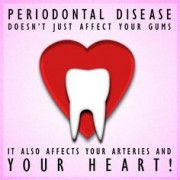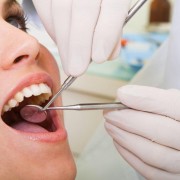Periodontal Disease Linked to Heart Disease
Heart disease is one of the most common health problems of many people around the globe. Did you know that poor oral hygiene can lead to heart problem? Gum disease is a type of condition wherein the tissues that surround the teeth are inflamed or has an infection. As this condition advances, the bones of the jaw will start to decay. This disease is caused by bacteria that grow within the surface of teeth under the gums. Scientific studies have shown that gum disease can lead to heart disease that can be describe as a diversity of heart infection, heart disease and other conditions.
Gum disease is an infection of the tissue that within the teeth. The first phase of gum disease is called as gingivitis as this condition aggravates, it can lead to periodontal disease. According to the expert from Michigan Health System, the mouth produces plaque naturally, an unseen substance situated in human teeth. This contains bacteria that can produce contaminant that can harm gum tissue, which will harden over time.
Heart Disease
Periodontal disease is linked to heart disease because when the infection and damage of the gums and bones becomes worst, the bacteria and the tiny fragments can be swallowed thus leading to heart disease. This is because the bacteria can travel through the bloodstream and can be deposited to the heart tissue that causes inflammation and infection.
Gingivitis is a slight condition that causes red and swollen gums that may bleed when brushed. Periodontitis can be seen when the gums starts to withdraw from teeth, wherein it exposes the bone. The unprotected bone may become infected with the bacteria. The gums may become swollen, red and may emit pus. The loosen teeth and bad breath means that it should be extracted immediately.
The signs of bacterial endocarditis comprises of breathlessness, joint pain, coughing, muscle aches, weakness, fever, fatigue and heart murmur. Heart functional issues eventually follows such as chest pain, irregular heart beat and heart palpitations.
Risk Factors of Periodontal Disease
The risk of developing this condition is very high for individuals who have genetic predisposition but most of all it is very common for people who doesn’t practice a healthy oral care. The teeth should be brushed at least 2-3 times a day and flossed once a day. Additionally, people with poor immune system are also prone to develop the condition such as patients with diabetes, leukemia and AIDS. Smokers or people who are under high stress with poor diet are also prone to develop this condition.
Prevention and Treatment of Periodontal Disease
The prevention is very important to avoid the bad effects of periodontal disease. Proper oral care like brushing and flossing the teeth regularly is a must to protect your teeth from these bacteria. Additionally, do not be afraid to visit your reliable and dependable dentist regularly for at least two times a year to prevent periodontal disease. Mild case of gingivitis will require proper oral care and antibacterial medication, but in severe case, the dentist may need to remove parts of the gums wherein it is the only way to prevent the disease to spread.
In conclusion, heart disease due to periodontal disease can be evaded as long as you know how to care your teeth. Consulting the dentist is an effective way to help you prevent heart disease.


